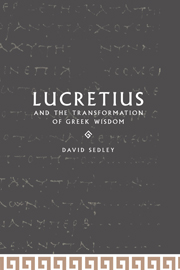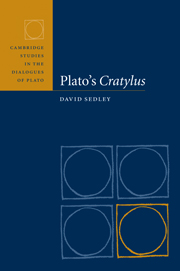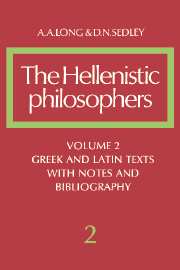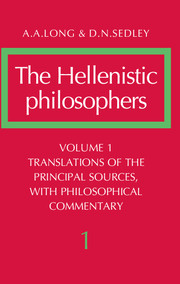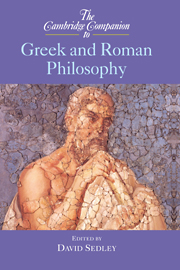Lucretius and the Transformation of Greek Wisdom
This book is designed to appeal both to those interested in Roman poetry and to specialists in ancient philosophy. In it David Sedley explores Lucretius' complex relationship with Greek culture, in particular with Empedocles, whose poetry was the model for his own, with Epicurus, the source of his philosophical inspiration, and with the Greek language itself. He includes a detailed reconstruction of Epicurus' great treatise On Nature, and seeks to show how Lucretius worked with this as his sole philosophical source, but gradually emancipated himself from its structure, transforming its raw contents into something radically new. By pursuing these themes, the book uncovers many unrecognised aspects of Lucretius' methods and achievements as a poetic craftsman.
- The appearance of this book is a great event - a first class modern philosopher writing on a major Roman author
- Nothing of this kind available elsewhere
- Contains the first ever full-scale reconstruction of Epicurus' great treatise On Nature
Reviews & endorsements
"...full of convincing individual arguments, and well worth reading." Classical World
"David Sedley has done perhaps more than anyone elsse in recent years in showing the closeness of the relationship between Lucretius and Empedocles, and especially how Empedocles' Physics provides Lucretius with his main poetic model." Gordon Campbell, Bryn Mawr Classical Review
"...Sedley's book is a great success, and forces the reader to rethink major questions about Lucretius' work." Phoenix
"...one of the most exciting and engaging books on Lucretius that I have read. It is clearly and elegantly written and Sedley is careful to assess other points of view." Apeiron
"Simply, a beautiful book: bold in its claims, meticulous and compelling in its argumentation...it should be of interest to students of Latin poetry and ancient philosophy alike, and it reads like a good detective novel." Ancient Philosophy
Product details
October 1998Hardback
9780521570329
256 pages
236 × 159 × 19 mm
0.55kg
Available
Table of Contents
- 1. The Empedoclean opening
- 2. Two languages, two worlds
- 3. Lucretius the fundamentalist
- 4. Epicurus, On Nature
- 5. Lucretius' plan and its execution
- 6. The imprint of Theophrastus
- 7. The transformation of Book I
- Epilogue.

